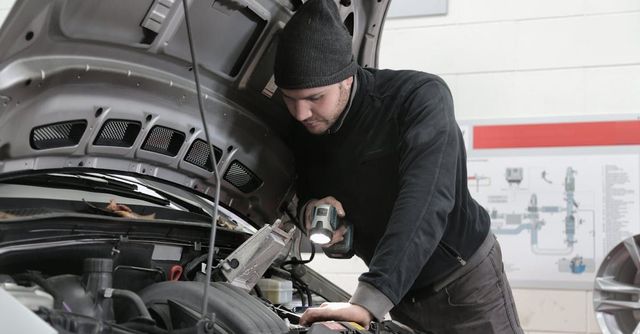Outstanding Auto Care Services for every single Chauffeur at Elite Auto Care
Outstanding Auto Care Services for every single Chauffeur at Elite Auto Care
Blog Article
Essential Car Care Tips to Keep Your Car in Top Problem
Key practices such as adhering to normal oil modification intervals, making certain proper tire maintenance, and consistently checking the brake system are fundamental to reliable car treatment. Furthermore, monitoring fluid levels and caring for the battery can prevent expensive repair services and boost durability. Elite Auto Care.
Routine Oil Adjustments
Regular oil adjustments are a crucial facet of vehicle upkeep that significantly effect engine efficiency and durability. Engine oil functions as a lube for different components, decreasing friction and stopping wear and tear. Over time, oil gathers breaks and contaminants down, which can result in decreased efficiency and possible engine damage.
It is typically advised to alter your oil every 3,000 to 7,500 miles, relying on the vehicle model and type of oil used. Routinely inspecting the oil degree and high quality can help guarantee optimal engine function. Using the correct grade of oil, as defined in the lorry's owner guidebook, is necessary for maintaining engine health and wellness.
Ignoring oil changes can cause sludge build-up, getting too hot, and ultimately, disastrous engine failing. Along with regular oil adjustments, take into consideration changing the oil filter concurrently to boost the oil's performance and extend engine life.
Purchasing regular oil adjustments not just maintains vehicle efficiency yet also adds to much better fuel efficiency and lower emissions. Establishing a consistent maintenance timetable with a trusted technician can assist you remain on top of this important solution, ensuring your lorry continues to be in peak condition for many years to come.
Tire Maintenance
Proper tire maintenance is necessary for making sure lorry fuel, performance, and security effectiveness - Elite Auto Care. Routinely checking your tire stress is important, as under-inflated tires can lead to raised wear and minimized fuel efficiency. Utilize a reputable tire pressure gauge to guarantee each tire is blown up to the maker's suggested level, normally located on a sticker label inside the motorist's door
Furthermore, evaluate your tires for noticeable indications of wear, such as unequal tread wear or protrudes. Revolving your tires every 5,000 to 7,500 miles aids guarantee even tire wear and prolongs tire life. Furthermore, keeping appropriate wheel positioning and equilibrium not only improves driving comfort yet likewise minimizes unnecessary tire tension.

Last but not least, consider seasonal changes; switching over to winter tires in rough problems can considerably improve grip and safety and security. By adhering to these tire upkeep practices, you can improve your vehicle's overall efficiency and make sure a safer driving experience.
Brake System Checks
Tire upkeep plays an important duty in total car security, and a similarly vital part is the brake system. Routine brake system checks are vital to make certain optimal performance and safety and security while driving. The stopping system includes numerous parts, consisting of brake pads, rotors, calipers, and brake lines, all of which should be in great problem to operate properly.
To begin, examine the brake pads for wear. If they appear slim or used down, they ought to be replaced promptly to stop damages to the blades. Additionally, pay attention for any kind of uncommon noises, such as grinding or squealing, which may indicate a need for instant attention.
Next, take a look at the brake fluid article source level and its problem. Brake fluid absorbs moisture over time, bring about lowered stopping performance. A flush and replacement are suggested. if the liquid shows up dark or polluted.
Fluid Levels Examination
Maintaining ideal fluid degrees is critical for the trustworthy procedure of your vehicle. Regular evaluation of vital fluids-- such as engine oil, coolant, brake liquid, transmission liquid, power guiding fluid, and windshield washer liquid-- is important to ensure effective performance and long life.
Reduced oil degrees can lead to engine wear and overheating. Brake liquid should be examined for clearness and adequate levels, as it is crucial for effective braking performance.

Battery Treatment and Upkeep
A trustworthy battery is fundamental to the general efficiency of your car, simply as keeping optimum fluid levels is important. Regular battery care and upkeep can considerably prolong its lifespan and make sure dependable starts in all conditions.
First, examine your battery terminals and cables for corrosion. Clean any accumulation with a combination of baking soda and water, guaranteeing that the connections are free and limited from debris. A protected link is vital for effective power transfer.
Following, inspect the battery's fluid levels if you have a conventional lead-acid battery. Make certain that the electrolyte degrees suffice, complementing with pure water if essential.
Furthermore, test your battery's voltage regularly making use of a multimeter; a healthy and balanced battery usually checks out in between 12.4 and 12.7 volts. If the voltage dips listed below 12.4 volts, take into consideration recharging or changing the battery.
Conclusion
In final thought, sticking to crucial automobile treatment pointers is crucial for preserving car efficiency and durability. Regular oil adjustments, attentive tire maintenance, organized brake system checks, extensive liquid levels inspection, and appropriate battery treatment jointly add to a visit reliable and trustworthy car.
It is usually advised to transform your oil every 3,000 to 7,500 miles, depending on the automobile design and type of oil used.Correct tire upkeep is essential for guaranteeing car safety and security, efficiency, and fuel efficiency. Turning your tires every 5,000 to 7,500 miles helps guarantee even tire wear and prolongs tire life. Brake fluid ought to be examined for quality and adequate levels, as it is essential for efficient braking performance.

Report this page